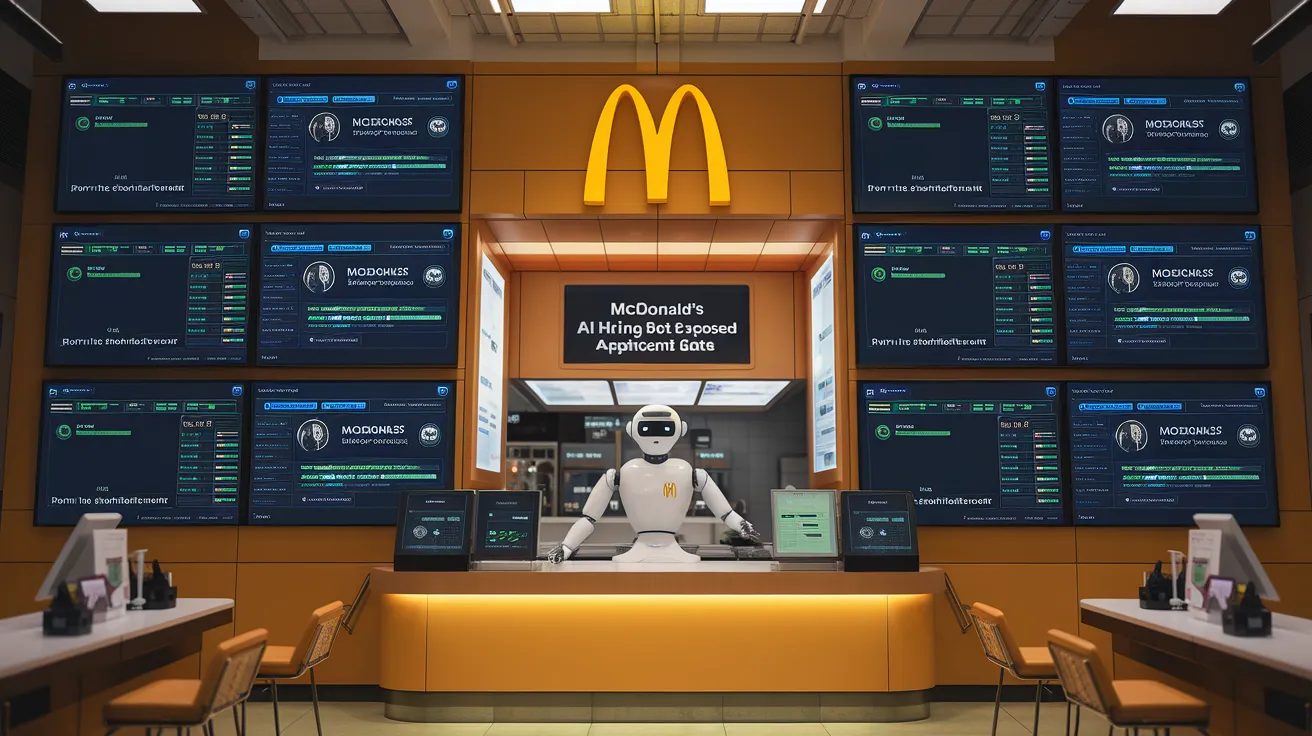McDonald’s AI Hiring Bot Exposed Applicant Data

For those seeking employment at McDonald’s, interactions with the AI chatbot Olivia have become commonplace. This automated assistant handles applicant queries, gathers contact information, and guides candidates through personality assessments. However, as of last week, the platform operating the Olivia chatbot, created by the AI software firm Paradox.ai, was found to harbor significant security vulnerabilities.
Notably, security researchers Ian Carroll and Sam Curry discovered that basic flaws—such as an administrator login utilizing the password “123456”—allowed them to access the entire database of chats between Olivia and McDonald’s job applicants. This alarming oversight granted them access to personal data for potentially 64 million applicants, including names, email addresses, and phone numbers.
Carroll’s investigation into the McHire platform stemmed from curiosity about the AI chatbot hiring process. “I thought it was pretty uniquely dystopian compared to a normal hiring process,” he noted. After applying for a job himself, he uncovered the sheer volume of accessible applicant data due to the lack of robust security measures.
When approached for comment, representatives from Paradox.ai acknowledged the researchers’ findings and confirmed that the administrator account with the “123456” password was not accessed by any third party other than the researchers. The company indicated its intent to implement a bug bounty program to address security vulnerabilities in the future, stressing that it does not take this matter lightly.
McDonald’s echoed these sentiments, placing the blame squarely on Paradox.ai for the vulnerability. They expressed disappointment about the issue and highlighted that remediation occurred swiftly after being reported. “We take our commitment to cybersecurity seriously and will continue to hold our third-party providers accountable,” a McDonald’s spokesperson stated.
Carroll and Curry became invested in the McHire security investigation after spotting complaints on social media about the hiring chatbot’s ineffectiveness. While attempting to test for vulnerabilities, they stumbled upon a login link for Paradox.ai staff on the platform and took the initiative to test common login credentials.
Over the course of the investigation, it became evident that, despite initial hesitations over privacy violations, every check of the applicant IDs revealed valid records of applicants, some containing sensitive personal information. The implications of such a data breach, although not involving highly sensitive data, could serve to facilitate phishing attacks by impersonating McDonald’s recruiters, potentially leading to financial scams that exploit applicants waiting for job confirmations.
Carroll underscored respect for McDonald’s workers despite the sensitive information being compromised, emphasizing that there should be no shame in working at the fast-food chain. The dual implications of job-seeking embarrassment and the increased risks of identity theft due to the exposure paint a bleak picture of systemic vulnerabilities in AI-assisted hiring processes.
This incident serves as a stark reminder of the importance of prioritizing cybersecurity within AI systems, especially those handling sensitive personal data in recruitment. As the integration of AI tools becomes ever more prevalent in workforce management, addressing these vulnerabilities must remain at the forefront of organizational responsibilities.